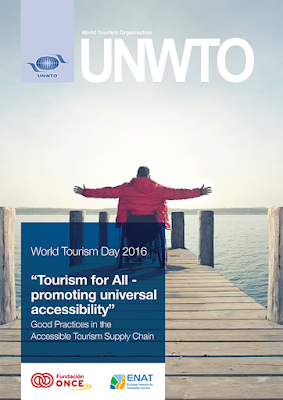Smart Cities missing out on Accessibility and Inclusivity
“While the entire smart cities (project) is data- driven project, there is no data on accessibility. Since there is no data, there is very less likelihood of including it into the indicators," said, Subhash Chandra Vashishth
Express News Service, Ahmedabad 28th Aug 2016
Leading experts from various sectors batted for the government to have more accessibility and inclusivity indicators in the Smart Cities Mission at the National Conclave on Universal Design & Accessibility (UD &A) in Smart Cities, organised by the Indian Institute of Management-Ahmedabad Saturday.
Speaking on the sidelines of the conclave, Subhash Chandra Vashishth, lawyer and founder of CABE, said, “While the entire smart cities (project) is data- driven project, there is no data on accessibility. Since there is no data, there is very less likelihood of including it into the indicators. Accessibility is actually still not on the agenda of smart cities, that’s what we have seen in our experience. It’s on automation, on getting smart technology — but not planning the environment keeping the last link — the weakest and most vulnerable person in mind. Unless that happens, this is not sustainable and we may have to end up redoing it in the future. So far we have been looking at accessibility as a charity and talking in terms of percentages, but we have not been benchmarking it.” He added that accessibility reforms will be brought in with the NBC (National Building Code) 2016.
“The IT infrastructure currently employed in corporates and banks etc that is usable by mainstream needs to be usable by all, which is where the gap really lies. For example, if you use a software in a bank, its usability by a blind person is not taken into consideration. And what it leads to is that no blind person is then placeable in that bank. Secondly, there are certain key building blocks for IT infrastructure and accessibility. One of them is this text to speech technology and it doesn’t work for us in Indian languages despite India becoming an IT hub of the world. Lots of research is happening through labs, but different models need to be brought in,” said Dipendra Manocha, managing trustee, Saksham Trust.
“The entire framework for smart cities is looking at how to provide IT infrastructure that is smarter, but who are the people going to use it? Especially children, old people, women etc, and people with disabilities who are not that smart. People creating these smart cities should also look at what unsmart people we are planning for in terms of programme, plan, delivery accessibility and usage. The smart cities mission misses out on the accessibility and inclusivity bit as many people who are not IT savvy, economically backward,” said Anjlee Agarwal, executive director, Samarthyam.
Source: Indian Express












